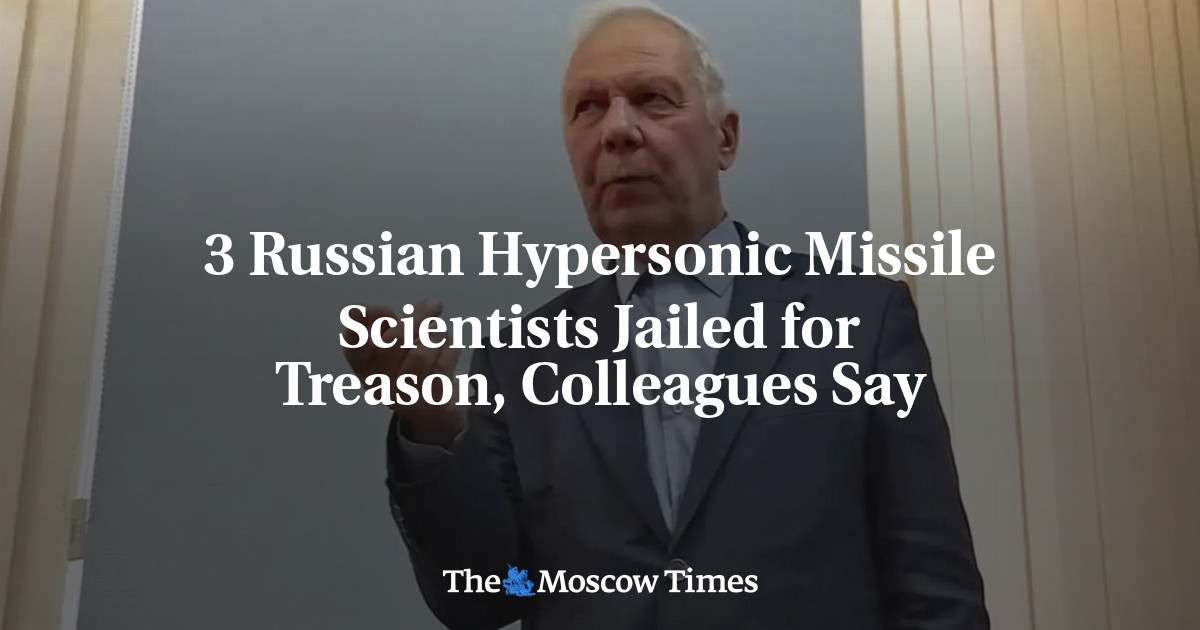
At least three Russian scientists who have worked on hypersonic missile development have been arrested on suspicion of treason over the past year, their colleagues said in an open letter published Monday.
Members of the Institute of Theoretical and Applied Mechanics of the Russian Academy of Sciences’ (RAS) Siberian Branch warned that the criminal cases risk setting back Russia’s advances in hypersonic technology.
“We simply don’t understand how to continue our craft,” the scientists wrote.
The institute said its members Anatoly Maslov, Alexander Shiplyuk and Valery Zvegintsev are held in custody on treason charges for speaking at conferences abroad, publishing articles in popular magazines and participating in international projects.
Maslow and Shiplyuk were known to have been arrested in the summer of 2022.
Zvegintsev’s arrest has not been previously reported. He is identified as the founder of a laboratory that deals with hypersonic technology.
Siberian media has reported that a Novosibirsk court ruled to place Zvegintsev in pre-trial detention on April 7.
Treason cases are heard behind closed doors in Russia as they deal with what authorities deem to be classified information. Those found guilty face a maximum prison sentence of 20 years.
The RAS scientists argued in their open letter that the allegations against their colleagues were leveled despite scrupulous peer reviews and inspections for “restricted information.”
“But the investigative bodies rely on other opinions for expertise. Who are these experts? What is their professional level?” they asked.
“We see that any article or report could become grounds for the treason charges. What we’re rewarded for and made examples of today becomes the cause of criminal prosecution tomorrow,” they said.
These and other treason cases targeting Russian scientists have had a chilling effect on young researchers, the Siberian RAS members said.
“Dropping levels of research due to aging scientists and the disrupted continuity in the generations of experts will […] gradually become irreversible and rapid.”
“We think these issues require an urgent solution, otherwise it will be impossible to prevent a catastrophe hanging over domestic aerodynamics.”